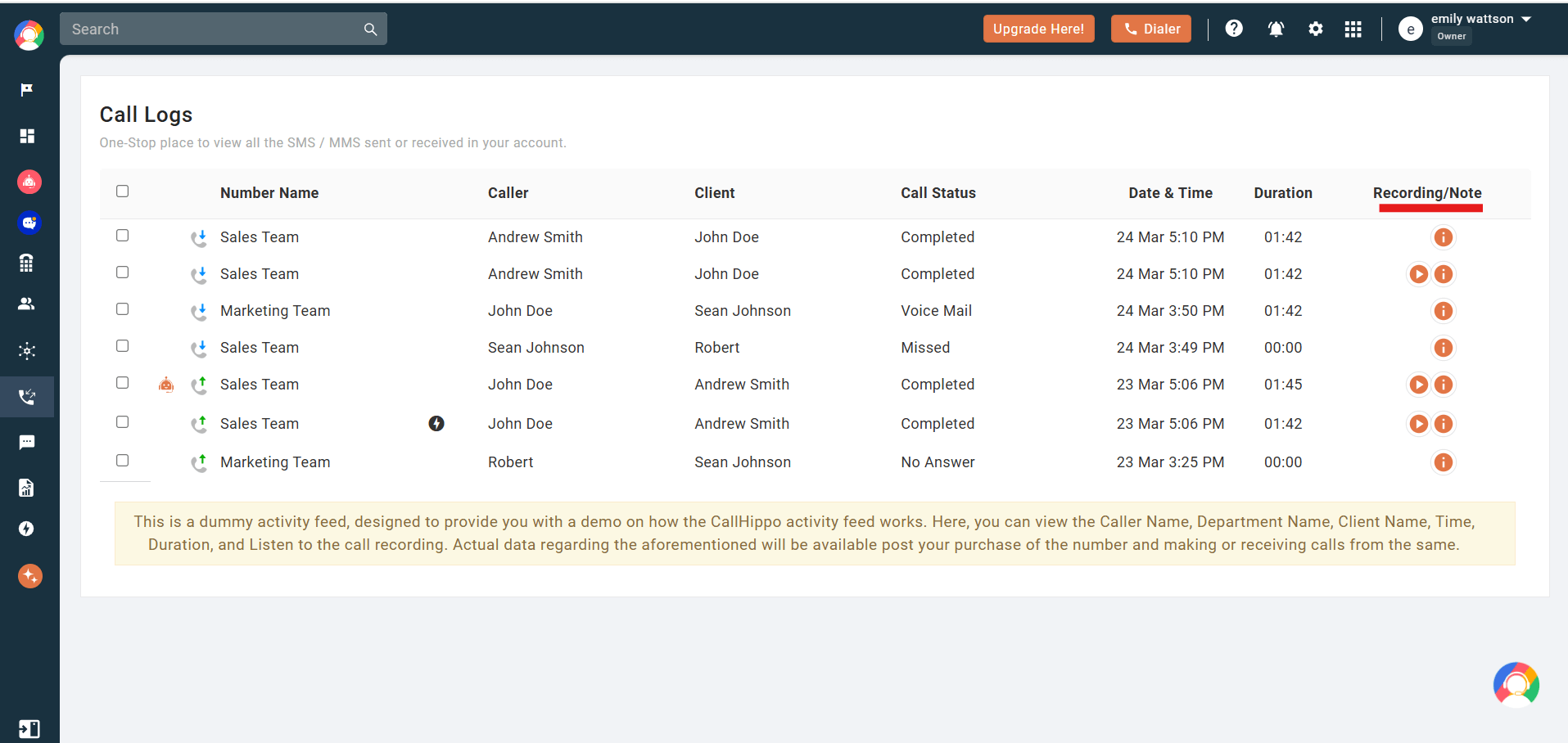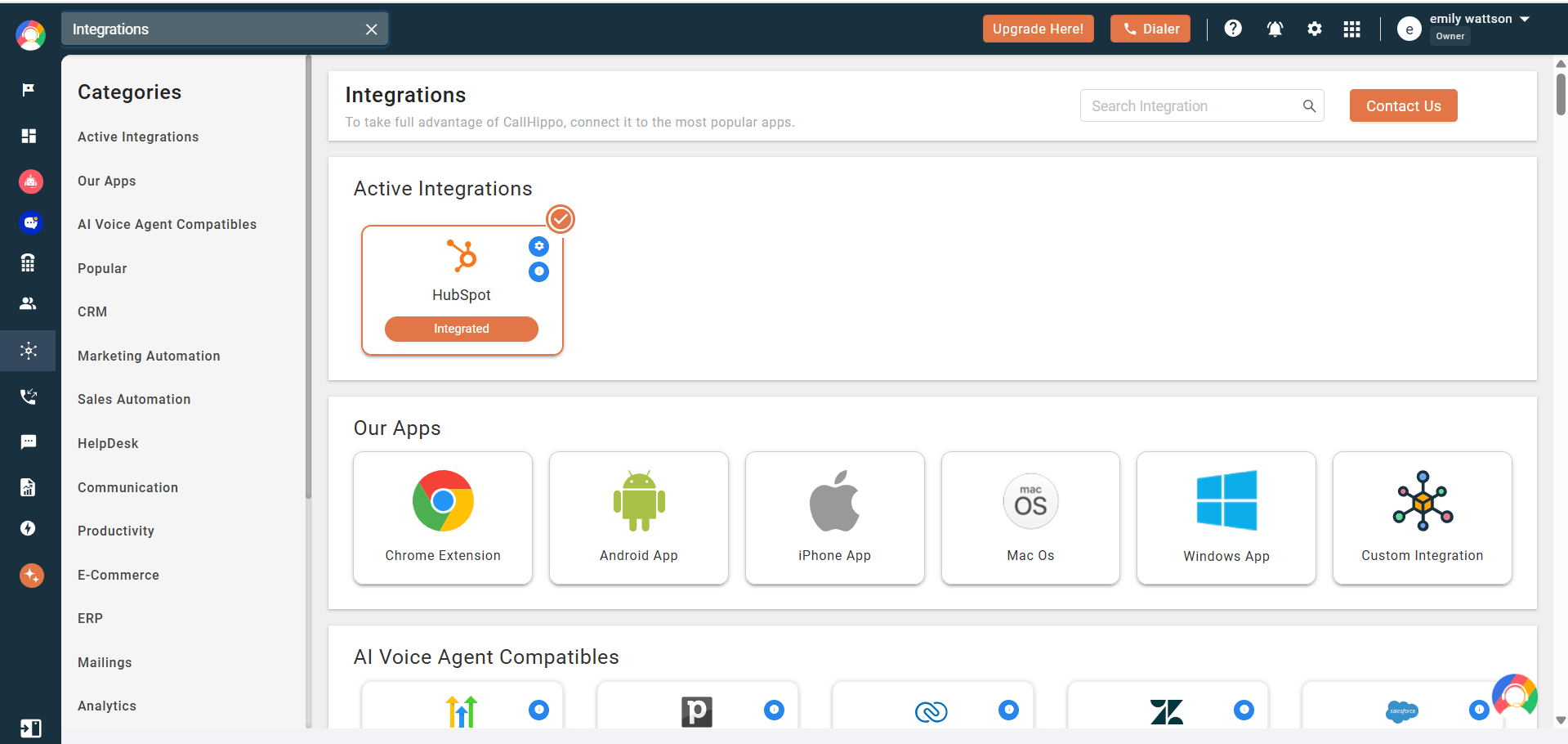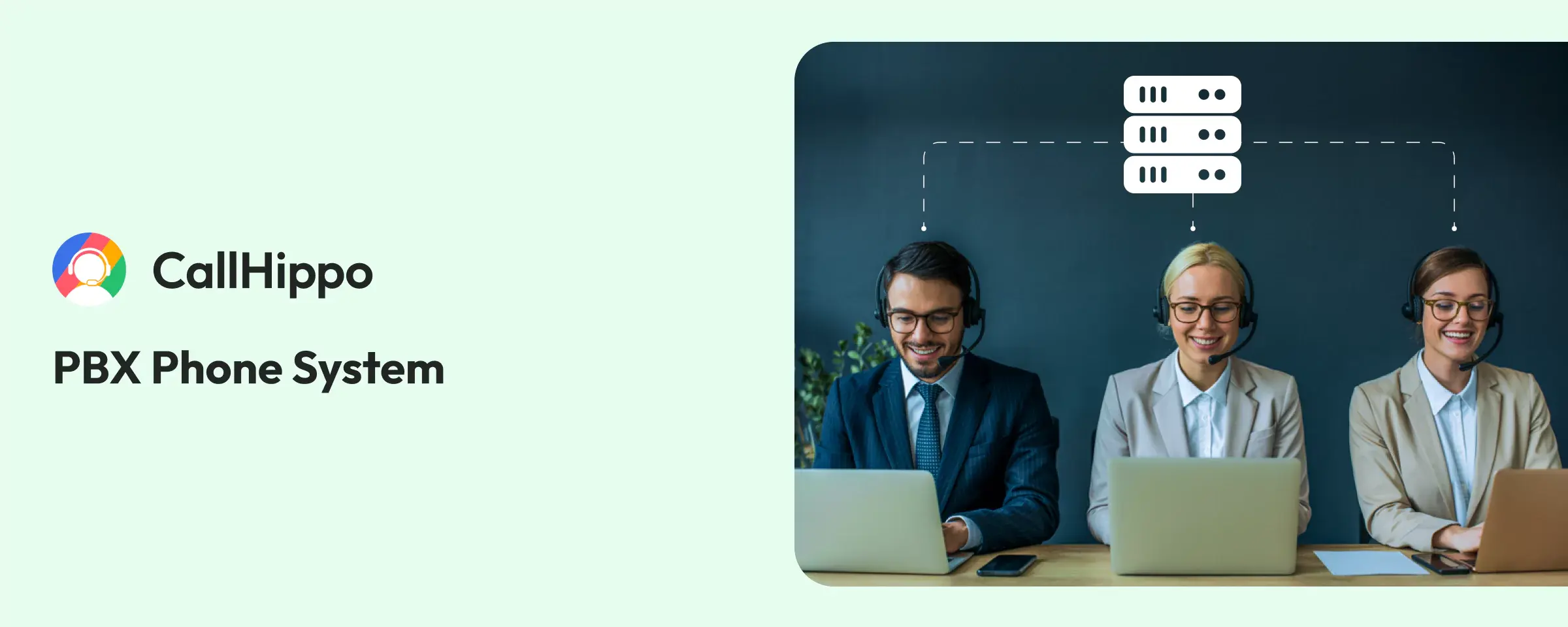Do you have separate phone lines for every employee and yet struggle with poor customer experience? Try implementing a cloud PBX phone system. Alongside saving costs, CallHippo PBX phone system offers advanced features to improve customer service.
The global PBX market is expected to grow to 124.54 billion by 2035! PBX systems are widely recognized across various industries like IT, BFSI, healthcare, and retail. Explore this guide and get an idea of what PBX business phone systems are, and then decide the best type for your business.
What Is A PBX Phone System?
A PBX (Private Branch Exchange) phone system is a local on-site phone network that connects users within a company and directs external calls through the internet or the public phone network.
This private telephone network acts as the central communication hub. Modern PBX systems use VoIP (Voice over Internet Protocol) to allow calls over the internet. PBX systems are more flexible and feature-rich, while they still offer the key benefits of integrating phone resources.
How Does A PBX System Work?
A PBX phone system acts as the central switchboard and routes calls between extensions for free, and directs external calls to the right employee or department. We will now explore the technical side of a PBX system and understand how it works behind the scenes:
Here’s how PBX phone system works step by step:
1. A customer dials your main business number.
2. The PBX picks up the call.
3. The PBX checks the call routing rules:
- If it’s set to ring all phones, it does that.
- If it’s set to send the call to a menu, the caller hears “Press 1 for Sales.”
4. The PBX delivers the call to the right extension. Inside the office, employees simply dial three or four-digit extension numbers instead of dialing a full phone number.
The core components of a PBX system are:
The PBX Server/Cabinet (The Brain): The PBX can be located in your office, or it can be hosted virtually in a data center. It manages all call processing, routing, and other features.
SIP Trunks or VoIP Gateways: The SIP trunks are the digital pathways that connect the organization’s private PBX to the external public telephone network.
IP Endpoints: IP endpoints are used by employees to make and receive calls. It can include cordless phones, IP desk phones, software-based phones on computers or smartphones, conference phones, etc.
Your Data Network (LAN//WAN): A stable Local Area Network (LAN) is very important, as calls are transmitted as data. All your IP endpoints and the PBX server connect to this network, which allows all internal communication.
- An ISDN (Integrated Services Digital Network) offered a way for PBX systems to use digital phone lines to transmit data, video, and voice simultaneously with speed and higher quality than an analog system. Although being a foundational technology, ISDN has become obsolete and is being replaced by advanced technologies like VoIP and SIP trunks.
Which Types of PBX Phone System is Right for Your Business?
PBX systems are not one-size-fits-all. They’ve evolved, and businesses today can choose from different types.
1. Traditional Analog PBX
This is the oldest form of a PBX phone system. It is distinct from a company’s computer networking hardware. It uses traditional phone lines (copper wire) and traditional POTS(Plain Old Telephone Service) lines to connect internal phone extensions to the Public Switched Telephone Network (PSTN). A traditional PBX works with standard desk phones and provides basic features like call transfer and voicemail.
- Reliable, doesn’t depend on the internet.
- Limited features, expensive hardware, costly maintenance.
2. IP PBX (VoIP-Based)
IP PBX systems use the Internet to carry voice calls. It is also known as a VoIP PBX or hosted PBX system. It is included as a unified communications platform that helps connect and route internal and outside lines in a single system.
The IP PBX acts as a central switchboard that connects internal users and routes calls to the public telephone network. Hosted PBX providers offer advanced features like voicemail transcription, call routing, call recording, auto attendants, IVR, on-hold music, etc. These systems can be software-based, hardware-based, on-premises, or cloud-hosted.
- Cheaper international calls, flexible, and integrates with software tools.
- Needs a stable internet.
3. Cloud-Hosted PBX
Cloud-hosted PBX, also known as virtual PBX, runs entirely on the cloud. It is not a complete phone system but a part of the hosted system. The cloud PBX system uses SIP trunking and VoIP technology to make internet-based calls.
A cloud-hosted PBX is basically a call routing and automated answering service that was created to handle incoming calls to help contact centers. This system is not very useful, as adding even basic functions like the ability to make outgoing calls results in extra costs.
- Easy setup, low upfront cost, accessible anywhere.
- Fully dependent on internet uptime.
4. Hybrid PBX Systems
A hybrid PBX system is the combination of modern voice over IP technology with PSTN/traditional analog phone lines. The hybrid model uses gateways and SIP trunking to offer voice services like incoming and outgoing calls to the company’s PBX system. This model is reliable for companies that cannot do a complete overhaul, as it provides the PBX with new scalability options and lower communication costs within the same hardware.
- Flexibility, gradual transition.
- Can be complex to manage.
What Makes CallHippo the Best Cloud PBX System for Your Business?
Whichever PBX system you select, it should fulfill the main requirements of your business. CallHippo is a modern cloud PBX phone system built for SMBs and enterprise businesses that look for global connectivity. Whether you’re a growing startup or an established company, CallHippo offers smart call handling, flexibility, and reliability at every call.
You get cloud-based phone access and features designed to improve both internal communication and customer experience for your business. With CallHippo PBX system, you can manage your business calls without any hassle!
CallHippo gives you an easy-to-setup PBX phone system so that you can make calls without relying on physical systems or phone company lines. With added features like call forwarding, routing, IVR, call recording, and analytics, you can manage everything from one place.

On-Premises Vs. Hosted or Virtual PBX Systems: Which is Better For Business?
The comparison table below will help you decide the right choice for your business:
| Feature | On-Premises PBX | Hosted/Virtual PBX |
|---|---|---|
| Setup | Hardware and wiring in the office | Cloud-based, minimal setup |
| Cost | High upfront cost, lower monthly fees | Low upfront, monthly per-user fee |
| Maintenance | Your IT team handles it | Provider manages everything |
| Scalability | Limited, needs new hardware for growth | Very flexible, add/remove users easily |
| Flexibility | Works best for fixed office setups | Best for remote and hybrid teams |
| Best For | Enterprises with IT staff and budget | SMBs, startups, growing teams |
Why Should Businesses Use a PBX Phone System?
Why do businesses keep choosing PBX systems? Let’s break it down.
1. Cost Savings And Efficiency
A PBX lets many employees share fewer external lines, so you don’t need to pay for one line per person. If the PBX is VoIP-based, long-distance and international calls go over the internet instead of a carrier. CallHippo’s PBX phone system starts at just $1 per month. This can cut your call costs by more than half. You also save money on maintenance. Old PBX systems needed on-site servicing and IT staff. With cloud PBX, the provider manages updates and repairs, so you don’t have to spend on the extras.
2. Scalability For Business Growth
As your business grows, you can add new users without rebuilding your phone system. You just create a new extension or account. With a cloud PBX, the setup happens instantly, and there is no downtime. You can also keep scaling your PBX as your company grows. A company with ten employees today can expand to hundreds or thousands later while using the same PBX platform.
3. Professional Call Management
When a customer calls, an auto-attendant can greet them and direct them to the right department. During busy times, the system places callers in a queue with hold music or recorded messages. And if no one is free, the PBX sends the call to voicemail. Voicemails can even show up in an employee’s email or mobile app, so that they don’t miss important messages. All of this makes the business look organized and professional.
4. Flexibility For Remote Teams
Employees can connect to a cloud PBX from a laptop, mobile phone, or browser. Every call still shows the company’s number, no matter where the employee is calling from. Teams can transfer calls and run conferences as if they were in one office. This makes remote and hybrid teams much easier to manage.
What Are the Key Features of Modern PBX Systems?
Today’s PBX systems include tools that make business communication smarter and more organized.
1. Voicemail and Call Forwarding
If someone misses a call, CallHippo’s PBX system forwards it to another line or sends it to voicemail. Employees can check voicemails on desk phones, through email, or in mobile apps. Calls can move to another team member if the first person is busy, so that customers are not left waiting.
2. Interactive Voice Response (IVR)
CallHippo’s IVR menu asks callers to press a number for a department. It helps customers reach the right person without repeating their issue. IVR systems reduce routine work for front-desk staff because the system routes calls automatically.
3. Call Recording And Monitoring
The third important feature is call recording. This feature of CallHippo lets managers listen to calls and use them for training. Recordings also help with compliance in industries like healthcare and finance. They also help resolve disputes, since they show exactly what was said. Monitoring and recording also help to keep the call quality consistent.

4. Integration With CRM And Business Tools
Your PBX system must integrate with tools like Salesforce or Microsoft Teams. When a customer calls, their details appear on the agent’s screen right away. The agent can add notes or update records while still on the call. This makes the workflow smooth since everything happens in one place. With CallHippo, you get 100+ integrations so you can manage your calls and data from a single dashboard.

5. Multi-Device And Remote Access Support
Employees don’t just use desk phones anymore. They can take calls on a softphone app on their laptop or on a mobile app. They can also switch between devices.
- Someone might start a call on their desk phone and continue it on their mobile while leaving the office. This makes it easy to stay connected anywhere.
Let’s understand each difference in simple terms:
PBX vs. VoIP
| PBX | VoIP |
|---|---|
| A system that manages business calls | A technology that carries calls over the internet |
| Handles call routing, IVR, call queues , voicemail, etc. | Focused on transmitting voice as data |
| Can use VoIP as its foundation | Alone, it does not provide full PBX features |
PBX vs. PSTN
| PBX | PSTN |
|---|---|
| A private system for managing business calls | Traditional Public Switched Telephone Network |
| Can work with VoIP or PSTN | Uses copper wires for voice calls |
| Call routing, IVR, queues, integrations, etc. | Reliable for voice only, but limited |
| Often bypasses PSTN with VoIP for savings | Still used, but declining in business setups |
PBX vs. UCaas
| PBX | UCaaS |
|---|---|
| A system focused mainly on voice calls | Unified Communications as a Service |
| Voice calling, routing, voicemail, IVR, etc. | Combines voice, video, chat, and collaboration tools |
| Best for businesses that mainly need voice management | Best for businesses that want all-in-one communication |
What Should You Look for When Choosing a PBX Phone System?
You need to keep a few things in mind while choosing the right PBX business phone system. I’ll churn it down for you:
1. Consider Business Requirement
First, you need to consider business size. Small businesses often go with hosted PBX because it’s easier to set up and manage. Enterprises, on the other hand, may choose on-premises systems since they want more control.
Next, look at your budget. Cloud PBX usually has low upfront costs but comes with monthly fees. On-premises requires a bigger investment at the start. After that, it can sometimes turn out cheaper in the long run.
Finally, make a list of the features you really need. This could be call recording, CRM integration, or IVR. Having this list ready will make it easier to compare options.
2. Security And Reliability
Start with security. Ask if the system offers call encryption so your conversations stay private. Check data protection policies. These show how customer information is handled and kept safe. After that, look at reliability. See if the provider offers uptime guarantees, so you know the system will always be available when you need it.
3. Vendor Support And Service
First, remember that support matters just as much as features. A system with great tools but poor service can slow you down. Check if the provider offers 24/7 customer care. You want help to be available whenever you need it.
Ask about service-level agreements (SLAs). These documents explain how quickly the provider will respond to issues. Take time to read reviews or case studies. This gives you a real picture of how reliable the provider is.
- Write down your must-have features.
- Set a budget for upfront and ongoing costs.
- Test your internet speed if you want a VoIP-based PBX.
- Shortlist 2–3 vendors.
- Try free trials before making a final decision.
Common Use Cases of PBX Systems in Businesses
Here are some common use cases of PBX systems:
1. Small Business Communication Solutions
Small businesses often need a professional phone setup without spending too much. A cloud PBX is perfect for this.
- In a small real estate agency, all calls to the main office number can automatically go to agents’ mobile phones or laptops. In this way, agents will never miss a client, even when they are out showing properties. The PBX also handles call forwarding, voicemail, and simple auto-attendant menus.
2. Enterprise Call Management
Large organizations need a PBX to manage high call volumes efficiently.
- A multinational bank might have thousands of employees using an on-premise PBX. But every call can be tracked and routed according to department, priority, or employee availability. PBX integrates with the bank’s CRM, so when a customer calls, the agent can instantly see the customer’s history.
3. Remote and Hybrid Workforce Enablement
PBX systems also help businesses that operate across multiple locations or countries.
- A software startup with employees in five different countries can use cloud PBX to unify communication. The staff can answer business calls on laptops, mobile apps, or softphones, no matter where they are. The PBX system keeps the same business number for all calls, so that clients can always reach the company, not individual employees.
Conclusion
A PBX phone system is the backbone of business communication. It helps manage calls, save money, and grow with your team. Whether your business chooses an on-premise, cloud, or hybrid system, the right PBX makes communication easier for employees and more professional for customers. The key is to pick a system that matches your business needs, budget, and plans.
FAQs
1. What is a PBX phone system in simple terms?
In simple terms, a PBX phone system is a private phone network for businesses. Employees call each other with extensions, and outside calls are shared through fewer external lines.
2. How is PBX different from a regular phone system?
A regular phone system connects one phone to one line. But a PBX system connects many phones in one single line and manages internal and external calls.
3. Is a PBX system suitable for small businesses?
Yes. Small businesses often use cloud-hosted PBX. It’s affordable, quick to set up, and doesn’t need heavy hardware.
4. How much does a PBX phone system cost?
The rough estimate of a PBX phone system is:
- On-premise PBX: $500–$1,500 per user upfront, plus maintenance.
- Cloud PBX: $15–$40 per user per month.

Subscribe to our newsletter & never miss our latest news and promotions.








